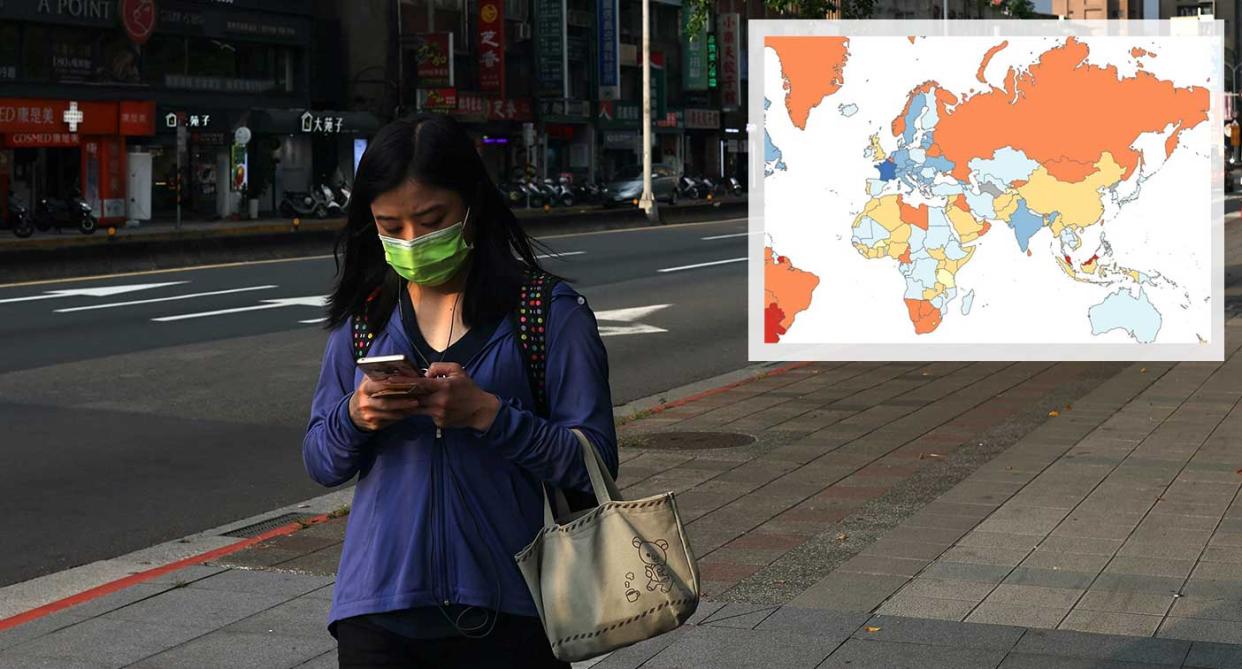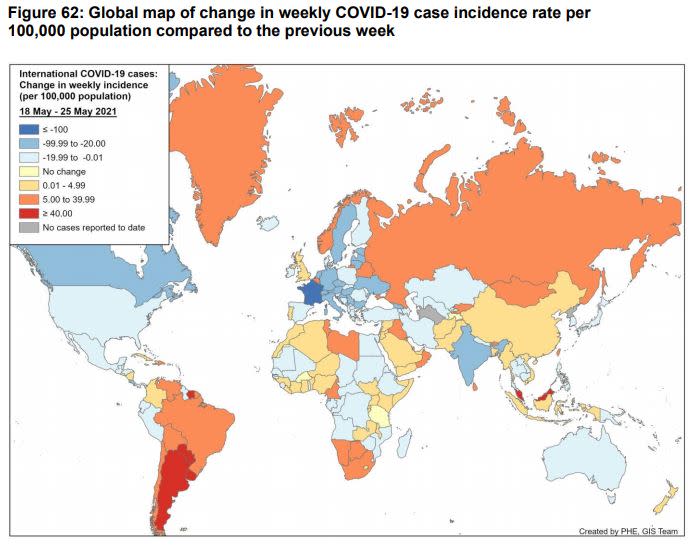Map shows where Covid cases are increasing and decreasing around the world

The World Health Organisation has warned that the "global picture" of the coronavirus pandemic could mean a shortfall of 190 million vaccines by the end of June.
The global health body said that despite a decline in numbers in countries such as America and Australia, and with the UK and much of western Europe maintaining steady lower numbers, "the global picture is far more concerning".
Case numbers are also falling slightly in India, but the number of infections and deaths remain high. South America, in particular Argentina, continues to experience significant increases in cases.
A map published by the UK government on Thursday paints a stark global picture of infections, with South America, South Asia and parts of Africa seeing an increase - and Europe, the Middle East and North America experiencing a trend showing the virus in decline.
"At no point in this pandemic have we seen such an acute need to look to the future challenges and not rest on the patchy achievements made so far," WHO said in a joint statement with UNICEF and other groups that form the COVAX global vaccination programme body.

The statement warned that due to the rapid spread of the virus in India, vaccination supplies were running low, and the world could face a deficit of 190 million doses by the end of June.
"We are seeing the traumatic effects of the terrible surge of Covid-19 in South Asia – a surge which has also severely impacted global vaccine supplies" it read.
"We are also witnessing why access to vaccines before a surge occurs is so important. For that reason, we must focus on ensuring countries who have not benefitted from these life-saving tools do so now, and with urgency."
Countries in Asia are currently being forced to ramp up restrictions and the vaccine rollout to counter the spread.
On Friday, Japan extended a state of emergency in Tokyo and other areas to June 20 as the pandemic shows no signs of easing less than two months before the Summer Olympics open.
Malaysia's prime minister announced a nationwide "total lockdown" starting in June as infections surged to record levels, while Taiwan aims to cover 60 per cent of its population with at least one dose of vaccine by October as it faces its worst outbreak of the pandemic so far.
In Europe, the situation is very different. As the vaccine rollout gains momentum, many countries are planning a gradual return to normal, opening borders and letting people back into restaurants, shops and sports venues after more than a year of on-off lockdowns.
France allowed cafes, bars and restaurants to offer outside service from 19 May. Indoor dining will be allowed from 30 June. Germany is on target for outdoor concerts this summer, with social distancing and Covid-19 testing for attendees, and if cases fall further fans should be back at football matches in August.
Spain has said that, from 7 June, it will let in vaccinated people from anywhere in the world. In Italy coffee bars, restaurants, cinemas and theatres partially reopened in most regions on 26 April, and restaurants will be allowed to serve customers at indoor tables from 1 June.
The UK is due to unlock on 21 June, but there are growing concerns the spread of the Indian variant could delay that. Health Secretary Matt Hancock said on Thursday that cases of the Indian variant of Covid-19 have doubled in a week to reach almost 7,000, although hospital admissions remain broadly flat.
During a press conference on Friday the director general of WHO - Dr Tedros Ghebreyesus - said: "With over 3.5 million recorded deaths from Covid-19, an estimated loss to the global economy of 22 trillion dollars, and new variants compounding explosive outbreaks, this pandemic is far from over.
"We have lost millions of lives, millions of jobs, millions of smiles."


